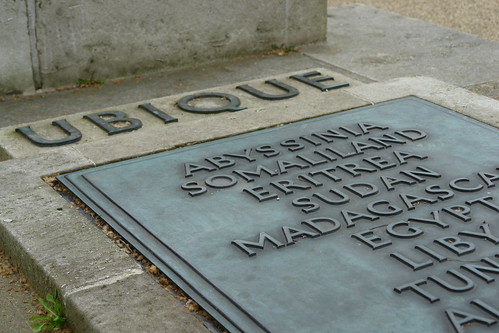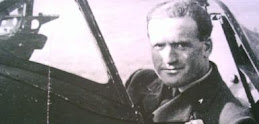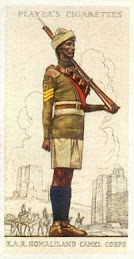The Prime Minister at that time, Harold Macmillan, told the House of Parliament:
“I should like to say, however, that it is Her Majesty’s Government’s hope that whatever may be the constitutional future of the Protectorate, the friendship which has been built up between its people and those of the United Kingdom for so many years will continue and indeed flourish.” – [Official Report, 11 April 1960;Vol.621,c.104W.] By Jamal Ali Hussein
6 November 2007
As the Commonwealth countries meeting is about to start in Uganda during November 2007, the United Kingdom citizens who are originally from Somaliland are currently worried about the situation of their original mother country. They are amazed by the lack of Britain’s role in leading the way to promote Somaliland to a successful re-recognition. Somaliland Community particularly want the British Government to remember the words of its Prime Minister Harold Macmillan during early 1960s when Somaliland was about to receive its independence from Britain. The Prime Minister at that time, Harold Macmillan, told the House of Parliament:
“I should like to say, however, that it is Her Majesty’s Government’s hope that whatever may be the constitutional future of the Protectorate, the friendship which has been built up between its people and those of the United Kingdom for so many years will continue and indeed flourish.” – [Official Report, 11 April 1960;Vol.621,c.104W.]
Somaliland Republic (former British Somaliland) received its independence from Britain on June 26 th, 1960, and it was immediately recognized by 34 UN Member States, including the five Permanent Members of the Security Council. This made Somaliland to be the first independent Somali country to become a member of the United Nations before uniting voluntarily with the Italian Somaliland (current Somalia) on July 1 st, 1960 to form what was known as the Somali Republic in pursuit of irredentist dream of “Greater Somalia” including parts of Ethiopia, Kenya, and Djibouti. Somaliland decided to re-instate its sovereign independence from Somalia after the fall of Siyad Barre regime in 1991. Somaliland is only seeking re-recognition within the borders received at the time of independence from Britain 1960. Somaliland, not officially re-recognized by any state, has been functioning as a constitutional democracy with a president directly elected by the people, added by a parliament and local government also directly elected by the people. Somaliland’s existing multi-party democracy system is rarity in Africa and the Muslim world.
British Somaliland was either a protectorate or colony for Britain nearly 80 years. Somaliland Scouts regiment even played an important role during Second World War. There is no doubt that Somaliland people feel let down by the British Government since Somaliland re-instated its sovereignty due to their historical relationship. But with Prime Minister Brown’s government, Somalilanders are hopeful that Britain will look into Somaliland’s re- recognition issue with fresh eyes. It is important to note that Somaliland is one of few African countries where the government does not receive a budgetary support from the international community; it is one of only few African countries where the President is directly elected by the people. Yet, no government came forward to recognize it. It has been reported that several countries had indicated that they do not want to be the First, but the 2 nd or the 3 rd etc to re-recognize Somaliland. Mr. Eid Ali Ahmed, member of Somaliland Societies in European and Chartered Fellow of UK Institute of Personnel and Development said “There is a long history between the people of Somaliland and the United Kingdom people. The people of Somaliland strongly believe that they need to have a powerful sponsor like East Timor, and Kosovo had in order to persuade the International Community start listening its voice, and that is where United Kingdom (Commonwealth leader) should have come in”. Mr. Eid Ali Ahmed added “ Somaliland is not the first nation that entered a voluntarily union and subsequently withdrawn from the union. Senegal and Gambia, Egypt and Syria, Senegal and Mali have all done likewise.”
It is important to note that a number of British members of Parliament visited Somaliland in many occasions, and encouraged the British Government to look into the Somaliland re-recognition issue. The most memorable debate on Somaliland issue in the house of British Parliament is the one organized by the Hon. Member for Clydebank and Milngavie (Tony Worthington) in 2004 after he and other honorable members just returned from a visit in Somaliland. There was no one who could make a better case for Somaliland re-recognition than those British MPs. The honorable Tony Worthington said during the debate “ Somaliland has rebuilt its country without international assistance. It has acted totally on democratic lines, and the demand for independence was supported in a referendum by more than 90 percent of the population. The level of stability is impressive. I was far more impressed with the country than those of several other African countries that I have visited – countries that we recognize and support. Somaliland is doing nearly everything right, but it is being ignored.” The British MP in addition said “It is worth noting that Somaliland people supported, and stood shoulder to shoulder with Britain during the Second World War.”
The private sector in Somaliland is thriving, and now boasts of several private airlines, four electricity companies and five telecommunications companies, which offer both mobile and landline telephone services. People of Somaliland would tell you that they did not have any of those businesses for 31 years of marriage with Southern Somalia. One of the most remarkable aspects of Somaliland achievements include the major contributions made by the Somaliland Diaspora community particularly the ones living in the United Kingdom, Europe, Middle East, and North America.
Somaliland residents in Britain have pleaded with the UN not to deny Somaliland the right guaranteed in Article 3 of the Universal Declaration of Human Rights. The people of Somaliland are questioning the world community's action as it also contradicts Articles 15 (1) and (2) which states that "everyone has the right to nationality" and that "no one shall be arbitrarily deprived of his nationality nor denied the rights to change his/her nationality respectively." The action runs counter to the International Covenant on Economic, Social and Cultural rights -Article 1 which states that "all peoples have right of self-determination. By virtue of that right, they freely determine their political status and freely pursue their economic, social and cultural development". In the absence of codified rules, it seems that the conventional wisdom has been that states recognize or do not recognize other states on the basis of their selfish interests. In last January at a high-level meeting in Brussels, organized by Somaliland Societies in Europe and Somaliland Community in Belgium (SBC), Mrs. Gleyns Kinnock the Labor Member of European Parliament for Cardiff said, “Somalilanders’ pleas for international recognition for their country must be heard. The right to self-determination for all peoples is a fundamental principle enshrined in the UN Charter. Indeed, it is an anomaly that Somaliland is still denied recognition by the international community."
In last December Kerry McCarthy Member of UK Parliament and secretary of UK All Party Parliamentary Group for Somaliland said “ Somaliland needs the protection of the international community if it is to maintain its position as beacon of stability in a troubled region. Formal recognition of its existence as an independent sovereign state would be a significant first step.” The president of Somaliland Dahir Rayale Kahin made a speech in the British Parliament a couple of years ago, and many times repeatedly shown his concern by saying “Lack of re-recognition could mean that Somaliland cannot enter a formal trade agreements with other nations or seek assistance from financial institutions although the country has unexploited opportunities.”
The opposition leaders in Somaliland have a common stand on the issue of re-recognition with the President and the government. Mr. Faisal Ali Warabe, Somaliland’s UCID opposition party leader, and a presidential candidate in 2008 asks “"Somaliland was a recognized country until its leaders illegally merged with southern Somalia. Why is the international community reluctant to honor the wishes of the same country that now wants to go back to its statusquo ante (original status as a country)? Somaliland simply wants its UN seat back”. In addition, Somaliland’s other KULMIYE opposition party leader, and also a presidential candidate in 2008 Mr. Ahmed Mohamed Sillanyo states “Will the International Community respect the choice of the Somaliland people? Will Britain do its moral duty to influence and lead the international community to respect the choice of Somaliland people as it once did back in 1960? Will Somaliland be considered as a Commonwealth member during the upcoming meeting?”
Jamal Ali Hussein, Chief Executive Officer/Managing Director of Citibank Cote d’Ivoire – WEST AFRICA.
First published 6 Nov 2007 Kenyan "People Daily" Newspaper.
http://www.somalilandtimes.net/sl/2007/303/05.shtml

 Jan - Feb 1920- The RAF's first "little war". RAF units were involved in operations with the Camel Corps in British Somaliland (now Somalia) to overthrow Dervish leader Mohammed bin Abdullah Hassan, the "Mad Mullah". The airborne intervention was "the main instrument and decisive factor" in the success of the operation. Ten dH9s were dispatched to form "Z Force", and were used for bombing, strafing and as air ambulances.
Jan - Feb 1920- The RAF's first "little war". RAF units were involved in operations with the Camel Corps in British Somaliland (now Somalia) to overthrow Dervish leader Mohammed bin Abdullah Hassan, the "Mad Mullah". The airborne intervention was "the main instrument and decisive factor" in the success of the operation. Ten dH9s were dispatched to form "Z Force", and were used for bombing, strafing and as air ambulances. 5 Feb 1920- The RAF College opened at Cranwell, Lincolnshire.
5 Feb 1920- The RAF College opened at Cranwell, Lincolnshire.


.png)



